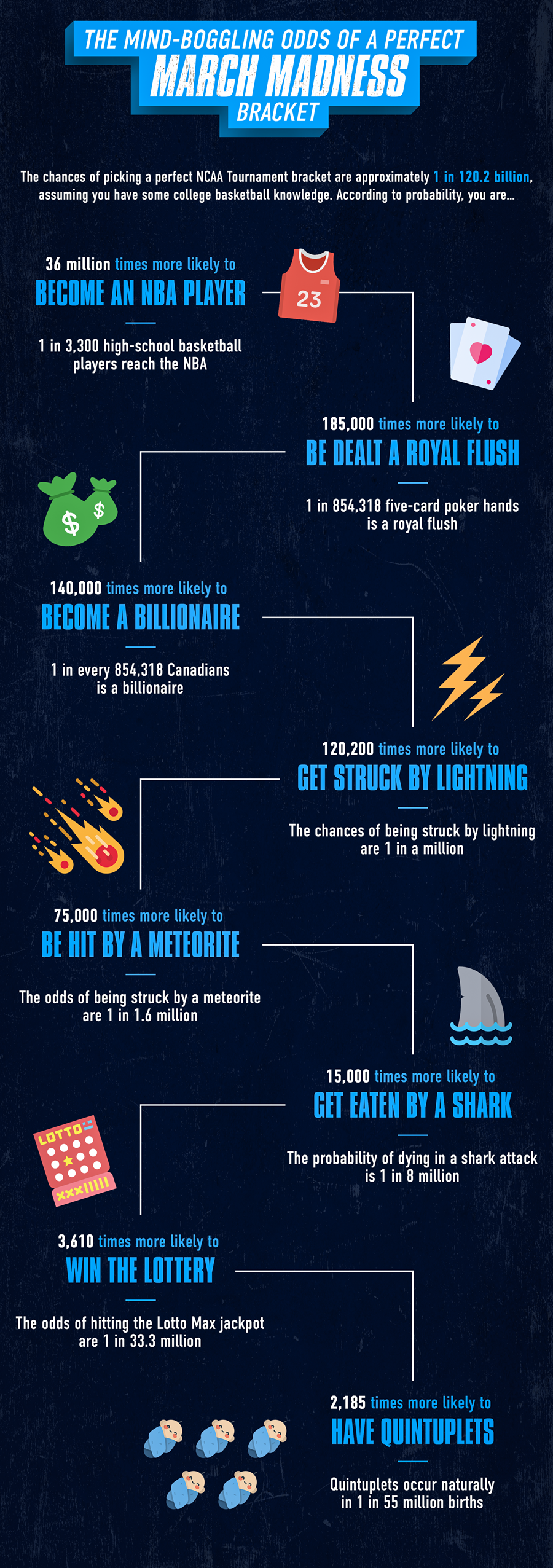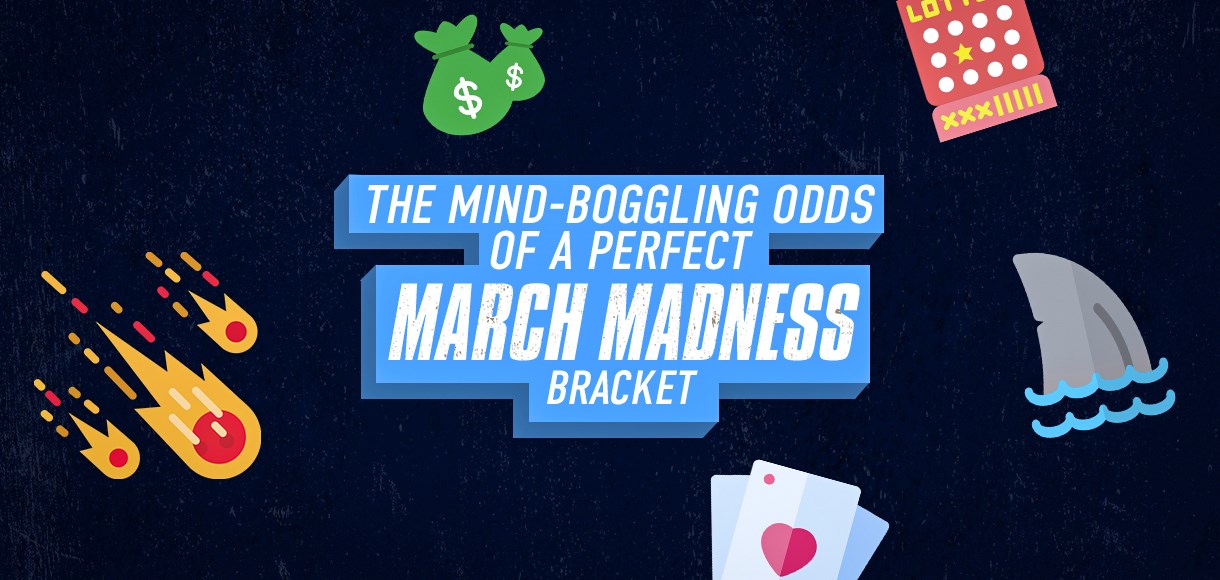It is more likely that you will be struck by a lightning bolt, have quintuplets, and even win the lottery, than picking a perfect NCAA Tournament bracket.
Millions upon millions of people fill out their NCAA Tournament brackets every year; each of those brackets being busted without fail.
It doesn’t matter whether you are a casual fan or you are a true enthusiast who spends months researching the potential championships; there are pretty high chances that you will never come close to a perfect March Madness Bracket.
Just like betting in sports, trying to nail the bracket is now a huge part of enjoying the tournament.
When you look at the odds of correctly predicting all the 63 games, it will become apparent to you why no one has ever succeeded, and why nobody ever will.
If you are to correctly pick all 63 randomly, it means overcoming the odds of one in 9,223,372,036,854,775,808. This is 9.2 quintillion. To shed a little light on this, 9.2 quintillion seconds is the same as 292 billion years.
People never fill out their brackets entirely randomly. If, however, they were to do that, their chances of getting it right would be significantly lower, than if they had some knowledge of college basketball.
In 2020, data from the Bracket Challenge Game revealed that an average player had a one in 120.2 billion chance of being successful in picking a perfect bracket.
An easy way to contextualize this probability, is to compare it with certain occurrences that also have extreme probabilities, but which are more likely to happen compared to one nailing a perfect bracket.
First, let’s start with becoming a professional basketball player.
Out of the nearly 540,000 players who take part in men’s high school basketball, less than one in 35 will proceed to play basketball in college, and less than one in 75 will go on to get drafted into the NBA.
This implies that a high school basketball player has a one in 3,300 chance of making it to the NBA. But even with that, it is 36 million times more likely than nailing a perfect bracket.
Secondly, let us look at being dealt a royal flush in a game of poker. This is normally the rarest hand, and it has a chance of one in 854,315. Surprisingly, this is 185,000 more likely to happen than you getting a perfect bracket.
Now, think about the odds of being struck by lightning. There is a one in a million chance of this happening. And, this is 120,000 times less likely to happen than you nailing a perfect bracket.
If you think of being hit by a meteorite from space, then you have to be the hugely unlucky one out of a pack of 1.6million people. This is laughably improbable, but it is still 75,000 times more likely to happen than you nailing the perfect bracket.
If you think about winning the Lotto Max Jackpot, you have a one in 33.3 million chance, and if you consider the odds birthing quintuplets, then you have just one chance out of every 55 million natural births. The former is 3610 times and the latter is 2185 times more likely to happen than you correctly predicting all the outcomes of the 63 matches in the NCAA tournament.

The hunt for the perfect bracket is still on, and millions of people this year will be motivated by the progress of Gregg Nigl who came closer than anyone else before him, in 2019.
He managed to correctly predict 49 of 49 right from the start of the tournament. His luck, however, ran out when Purdue beat Tennessee in the Sweet Sixteen.
This was a super-impressive run, considering that there is a 17,000 to one chance of picking just the first few games correctly, back-to-back.
Even with that amount of consistent success, the perfect bracket was still out of reach. In order for him to correctly predict the final 15 games from the Sweet Sixteen, he needed to overcome odds of one in 32, 786.
Maybe it is time to finally throw in the towel and admit that no one is ever going to nail the perfect NCAA Tournament bracket. This March, millions of hopefuls are going to scrutinize the stats, and the seeding.
Unfortunately, they will watch in dismay as their bracket is busted within the very first few games of the tournament.
That said, it takes just one winner to shake this trend. It could be you!





